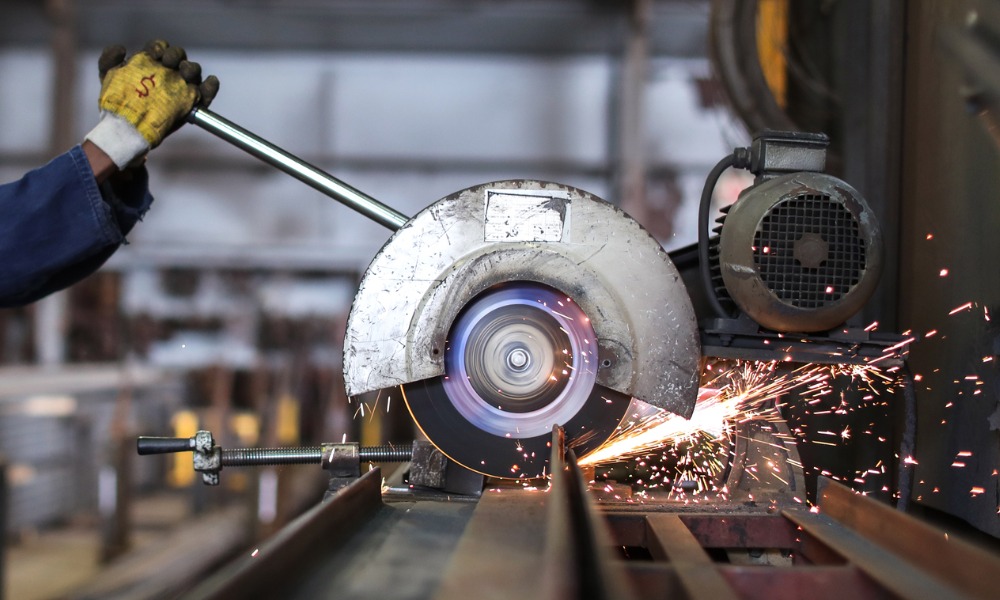When it comes to acquiring new industrial equipment, this can be one of the biggest steps for your business. Even if these machineries are costly and you don’t have the needed assets to use as collateral, industrial equipment finance is here to help you.
What is industrial equipment finance?
Equipment finance is a typical loan or lease contract used to acquire equipment for your business. It can be used to acquire machinery for the operations of your business or for the purchase of office equipment.
Types of Equipment Financing
Equipment financing may be in a form of:
- Loans: where the money loaned is used to buy the equipment, either from the same financing entity or not, to be payable within an agreed term
- Lease: where the financing entity will lease you some equipment, and its amount and interest will be paid over an agreed period
- Lines of Credit: where the financing entity establishes a borrowing limit that the borrower can use repeatedly, subject to the payment of capital plus interest
Read more: How can I get equipment finance for bad credit?
Although “equipment financing” is used by others to mean “loans”, some would also refer to it when they offer leases in acquiring equipment.
What to choose from among these options will depend on the financing entity you’re transacting with, your resources, and capacity to pay.
Industrial Equipment Finance
One of the different types or methods of equipment finance is industrial equipment finance. This is the purchase, loan, or lease of heavy equipment commonly used by a business (the borrower or the debtor) from a financing institution (the lender or creditor).
Examples
Industrial equipment finance does not really fall far from equipment financing, although it specifically refers to heavy equipment or heavy-duty machinery as the object of the financing contract.
Some examples of these heavy equipment or heavy-duty machineries are:
- Construction equipment: excavators, bulldozers, forklifts, backhoes, etc.
- Manufacturing equipment: depends on what is being manufactured and the industry using it (e.g., food processing or food production, agriculture, mining, medical, IT, etc.)
- Equipment for logistics and transportation: delivery vans or trucks, trailers or semi-trailers, etc.
It may also include office furniture and equipment, whenever necessary.
Advantages
Watch this video to know more about the advantages of equipment finance regarding collaterals, which also apply to industrial equipment finance:
The practice of equipment financing covers other areas. Read our article about equipment finance and its legal concepts for a broader view.
How does industrial equipment finance work?
Industrial equipment finance works similarly with a usual loan or lease –
- You receive either the cash (in a loan, to buy the equipment) or the heavy equipment itself (in a lease) after agreeing to a contract.
- You pay back the costs over a predetermined time as specified in the contract. These include the principal amount of the heavy equipment, interest rate, and other costs prescribed by your financing institution.
Practical considerations
When entering into a contract with a financing institution, it’s important to take note of:
- Your business needs
- Choosing whether to loan or to lease equipment
- Knowing the terms of your contract
In any case, consulting with an asset equipment finance/leasing lawyer is the first step to help you with these various considerations.
1. Your business needs
Looking at your business’s specific needs would help you know what equipment is needed. This is especially true because industrial equipment is usually highly valued or is mostly expensive, even though the terms of your financing or lease may make it affordable for you.
It will also help you determine whether to finance or lease for a brand-new equipment or a used equipment, since these two have advantages and disadvantages:
- Brand-new: higher costs, resulting in higher capital and interest payments, but will incur lower maintenance costs.
- Used: lower costs, which means that capital and interest payments are also lower, but with the disadvantage that the equipment may become obsolete (when newer models are released on the market).
There are other factors that you can weigh in choosing whether to acquire brand-new or used equipment:
- Your projected capacity to pay in relation to your business’s strength
- The estimated life of the heavy equipment or machinery
- If the cost of the equipment or machinery can be offset through other uses
- If the equipment or machinery can be sold after you’ve acquired ownership of it
2. Choosing whether to loan or lease
To help you decide whether to finance or lease for your needed heavy equipment, here are some factors to consider:
- Ownership: while ownership of the equipment in both a loan and a lease will only be transferred to you once you’ve fully paid for the equipment, its ownership in a loan may start as early as the start of the contract.
- Value of the equipment after full payment: if the lifespan or value of your equipment or machinery is unnecessary for its use after full payment (in cases where it can still be effectively used after some years), you may prefer a loan since owning the property may be your target. Otherwise, a lease is preferred since you may have to replace such equipment or machinery after its lifespan – which may be aligned with the lease contract’s period.
These details will differ depending on the terms of your loan or lease contract. For this reason, it’s important to know the terms of your contract before signing it.
3. Knowing the terms of your contract
Here are some details to look out for:
- Period: how many years or months the contract is, and what specific date or week you should pay your financing institution.
- Interest rate: is the interest rate too excessive or is it just in relation to the equipment, its quality, etc.
- Collateral: is the heavy equipment the collateral itself, or do you need to provide separate collateral for the equipment you’re financing for
- Non-payment clauses: what happens when you cannot pay and what are your financing institution’s possible actions against you.
Know about how long you can finance equipment in Canada with this article.
Learn more about industrial equipment finance by consulting any of the Lexpert-Ranked best asset equipment finance/leasing lawyers in Canada.





